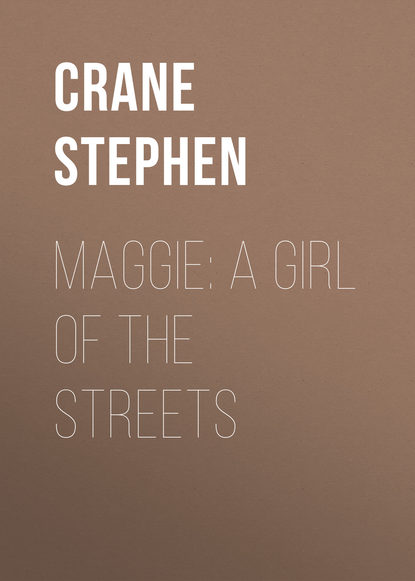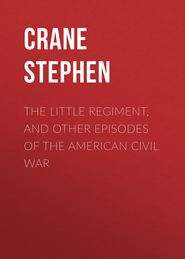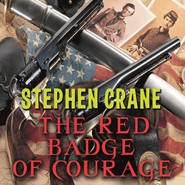По всем вопросам обращайтесь на: info@litportal.ru
(©) 2003-2025.
✖
Maggie: A Girl of the Streets
Автор
Год написания книги
2018
Настройки чтения
Размер шрифта
Высота строк
Поля
Foot-passengers were mere pestering flies with an insane disregard for their legs and his convenience. He could not conceive their maniacal desires to cross the streets. Their madness smote him with eternal amazement. He was continually storming at them from his throne. He sat aloft and denounced their frantic leaps, plunges, dives and straddles.
When they would thrust at, or parry, the noses of his champing horses, making them swing their heads and move their feet, disturbing a solid dreamy repose, he swore at the men as fools, for he himself could perceive that Providence had caused it clearly to be written, that he and his team had the unalienable right to stand in the proper path of the sun chariot, and if they so minded, obstruct its mission or take a wheel off.
And, perhaps, if the god-driver had an ungovernable desire to step down, put up his flame-colored fists and manfully dispute the right of way, he would have probably been immediately opposed by a scowling mortal with two sets of very hard knuckles.
It is possible, perhaps, that this young man would have derided, in an axle-wide alley, the approach of a flying ferry boat. Yet he achieved a respect for a fire engine. As one charged toward his truck, he would drive fearfully upon a sidewalk, threatening untold people with annihilation. When an engine would strike a mass of blocked trucks, splitting it into fragments, as a blow annihilates a cake of ice, Jimmie's team could usually be observed high and safe, with whole wheels, on the sidewalk. The fearful coming of the engine could break up the most intricate muddle of heavy vehicles at which the police had been swearing for the half of an hour.
A fire engine was enshrined in his heart as an appalling thing that he loved with a distant dog-like devotion. They had been known to overturn street-cars. Those leaping horses, striking sparks from the cobbles in their forward lunge, were creatures to be ineffably admired. The clang of the gong pierced his breast like a noise of remembered war.
When Jimmie was a little boy, he began to be arrested. Before he reached a great age, he had a fair record.
He developed too great a tendency to climb down from his truck and fight with other drivers. He had been in quite a number of miscellaneous fights, and in some general barroom rows that had become known to the police. Once he had been arrested for assaulting a Chinaman. Two women in different parts of the city, and entirely unknown to each other, caused him considerable annoyance by breaking forth, simultaneously, at fateful intervals, into wailings about marriage and support and infants.
Nevertheless, he had, on a certain star-lit evening, said wonderingly and quite reverently: "Deh moon looks like hell, don't it?"
Chapter V
The girl, Maggie, blossomed in a mud puddle. She grew to be a most rare and wonderful production of a tenement district, a pretty girl.
None of the dirt of Rum Alley seemed to be in her veins. The philosophers up-stairs, down-stairs and on the same floor, puzzled over it.
When a child, playing and fighting with gamins in the street, dirt disguised her. Attired in tatters and grime, she went unseen.
There came a time, however, when the young men of the vicinity said: "Dat Johnson goil is a puty good looker." About this period her brother remarked to her: "Mag, I'll tell yeh dis! See? Yeh've edder got teh go teh hell or go teh work!" Whereupon she went to work, having the feminine aversion of going to hell.
By a chance, she got a position in an establishment where they made collars and cuffs. She received a stool and a machine in a room where sat twenty girls of various shades of yellow discontent. She perched on the stool and treadled at her machine all day, turning out collars, the name of whose brand could be noted for its irrelevancy to anything in connection with collars. At night she returned home to her mother.












